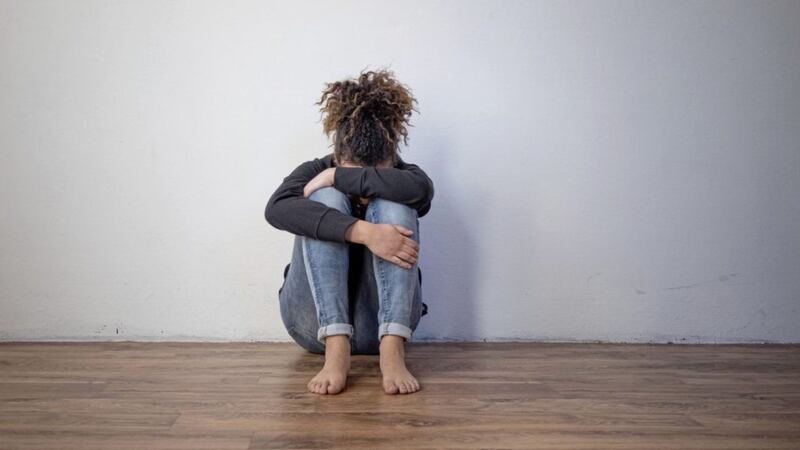A LANDMARK study has discovered one in eight young people in Northern Ireland experience common mood disorders such as depression and anxiety.
Academics from Queen's University Belfast and Ulster University surveyed more than 3,000 children and teenagers as well as parents and carers in what is the biggest data gathering exercise of its kind into youth mental health problems.
Bullying, social media, family relationships, alcohol/drug misuse and poverty were among the issues explored as part of the 18-month prevalence survey, which was also compiled by the Mental Health Foundation.
Exposure to family trauma and adversity, poor child health and disability, having special educational needs, living in a household in receipt of social security benefits and parental mental health, were the strongest predictors for having an anxiety disorder.
Older teenage girls had the highest rates of anxiety and depression. But rates were also"particularly high" for young boys aged 5-10 years-old, with authors saying this highlighted an area for "further study and service development".
The influence of social media and cyber bullying was also examined, with almost five per cent of 11-19 year olds meeting met the criteria for "problematic use". Incidences were higher among girls and teenagers
Overall, the research found youth mental health problems in the north were 25 per cent higher than in England, Scotland and Wales, reflecting a similar trend in adults.
However, there were also positive outcomes with levels of 'prosocial' behaviour - being considerate, helping and sharing, and having good relationships with peers - emerging as much higher than elsewhere.
Commissioned by the Health and Social Board, the Youth Wellbeing Study NI has been singled out by Children's Commissioner Koulla Yiasouma as a "milestone" in informing future policies and services.
"While the statistics are quite frankly sobering, there is power in knowledge. The Executive has committed to publishing the first Mental Health Strategy for Northern Ireland in 2021 and this survey provides a sound basis for improving support for children and young people," she said.
Dr Lisa Bunting, a senior QUB lecturer in social work said the study provided for the first time "reliable data" on mental health problems experienced by children, in addition to a range of factors which increase the likelihood that these issues will develop into adulthood.
"We want to make sure that the survey findings contribute to meaningful change and improvements in how we meet the needs of vulnerable young people in emotional distress," she said.
Dr Peter Taylor, a clinical psychologist from the University of Manchester who was a member of an international advisory board for the study, added: "This report represents an important landmark in capturing the mental health needs and challenges faced by young people living in Northern Ireland. By better understanding these needs and difficulties, we can then work to better support young people who are struggling."
The survey was funded by the Department of Health's 'transformation' monies.







